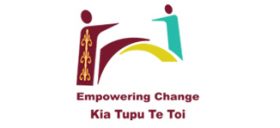Seeking a way to help your organization’s leaders uncover and combat Unconscious Bias and its effects in your workplace?
Successful awareness training combined with creating structures is an effective strategy for addressing Unconscious Bias and increasing the health of your organization. Potential is nurtured and outcomes profit.
Tīmoti Harris is an experienced Educator, Ministry of Education Facilitator, University Lecturer, specialist teacher and facilitator who will tailor-make a programme for organizational change based on strongly inclusive and relational bi-cultural pedagogy.
“It is my profound belief that there is no greater catalyst to change than engaging people in authentic experiences and sharing stories and information in a way which allows them to connect their learning to their future actions.” Tīmoti Harris
This course is not about attributing blame, it is about taking focused time to explore our thoughts and how they may influence aspects of our professional work. This is a course which invites us, with some fun, some safe personal reflection tools, and some activities to explore, identify and reflect on some of our knowing and thinking. It is a time to look at our own beliefs and ponder the question of where they may have come from, who taught us these thoughts or ideas and whether now is the time as an adult to re-evaluate that thinking and how it may influence our professional work today.
This course aims to help people, employees, and employers, to acquire more understanding and information on aspects of our Unconscious Bias. The course is offered based firmly on the premise that building knowledge changes attitudes. Being experienced in facilitation and education we contend that any course which delivers a focus specifically and solely round facts, content and an overly academic summary of outcomes may well result in learners switching off or becoming disengaged from the intended outcome of the course. At Empowering Change our courses aspire to bring about attitudinal change.
What does a programme for exploring Unconscious Bias offer?
Unconscious Bias causes us to make decisions in favour of one group compared to another.
Each and every one of us carries some bias which can have a powerful, and sometimes not so powerful impact or influence on our behaviour, our attitudes, our thoughts and even our actions. We are the products of all the experiences and teaching/modelling which surrounded us particularly as we grew up. This is a course which explores how these learnings and experiences have shaped us, and also how they are evidenced and how they affect results in our professional work. The course will explore how our bias can and does affect others and explore ways to combat their influence in our professional workings. We each hold beliefs on a range of identifications; these include gender, ethnicity, culture, ability, sexual orientation, religion, people from other nations, even work professions, those who are rich, those who are poor, employed and unemployed. This course begins with an exploration of the way each of us forms a bias, how that bias may/does manifest itself and explore ways of reducing their effects.
Much of the first part of this course is focused on considering the concept of “unconscious bias” and enabling each person to examine and begin to develop their personal learning and understanding of the biases they hold. The second part of the course focuses on identifying and strengthening participant’s skills to limit the intrusion of these learned biases into their professional world of work.
This programme or course delivery is offered as:
- One day learning workshop exploring concepts and examining our own beliefs about various social and identity groups and exploring modified actions
- Two-day workshop which includes on the first course and expands to further identify and strengthen participants’ skill to increase mindfulness and limit the intrusion of bias into their professional world
- Staff follow-up courses of 2-3 hour sessions over different timelines, by negotiation
- Leadership development sessions, by negotiation
Leaders are encouraged to meet and talk with the facilitator or facilitators and then co-construct the programme, content and outcomes according to their needs and resources.

